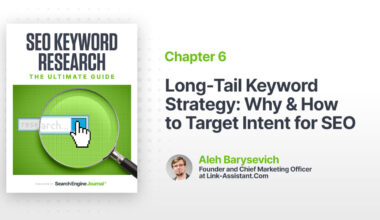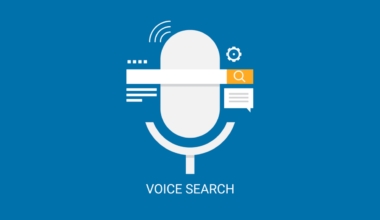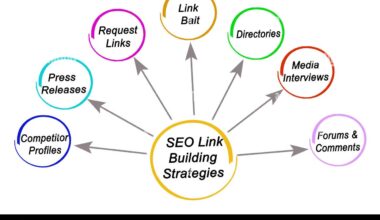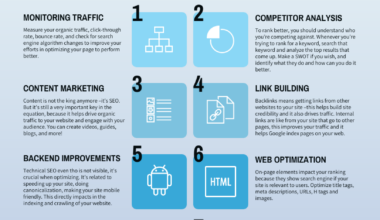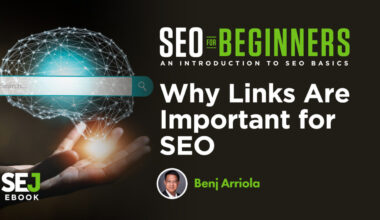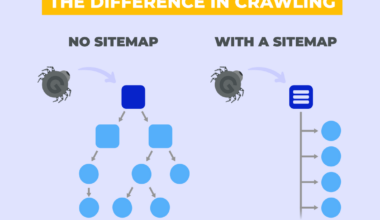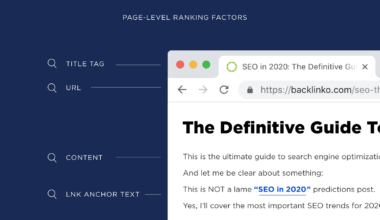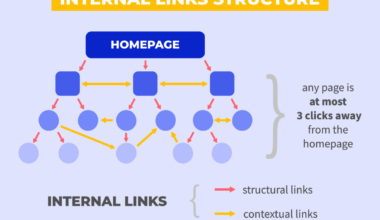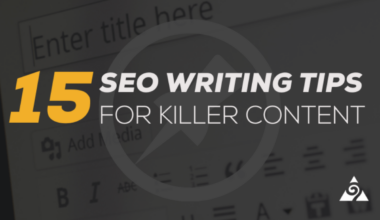Introduction to Bing Search Engine Optimization
As a search engine, Bing has been around since 2009 and has been steadily gaining market share. While Google is still the dominant player, Bing’s market share is growing, and it’s essential to optimize your website for both search engines.
Bing’s algorithm is different from Google’s, so optimizing for Bing requires a slightly different approach. Bing pays more attention to on-page factors like keyword usage, while Google’s algorithm is more complex and takes into account factors like backlinks and social signals.
Optimizing for Bing starts with understanding its ranking factors. Bing uses over 1,000 signals to rank websites, including on-page and off-page factors. These signals include keyword relevance, social signals, and backlinks.
On-page optimization is crucial for Bing. Bing’s algorithm pays more attention to keyword usage, so make sure to use relevant keywords in your content, title tags, and meta descriptions. Use header tags (H1, H2, H3, etc.) to structure your content and make it easier for Bing to understand.
Off-page optimization is also essential for Bing. While Bing doesn’t weigh backlinks as heavily as Google does, it still considers them an important factor. Focus on getting high-quality, relevant backlinks from reputable sources.
Bing Webmaster Tools is a powerful tool that can help you optimize your website for Bing. It provides insights into how Bing crawls and indexes your site, and it can help you identify and fix any issues that may be hurting your website’s ranking.
In conclusion, optimizing your website for Bing is an important part of your overall SEO strategy. While Google is still the dominant player, Bing’s market share is growing, and it’s essential to optimize for both search engines. Understanding Bing’s ranking factors and using tools like Bing Webmaster Tools can help you improve your website’s ranking on Bing.
Understanding Bing’s Ranking Factors
To optimize your website for Bing, it’s crucial to understand the ranking factors that Bing’s algorithm considers. Bing uses both on-page and off-page factors to determine a website’s ranking. Let’s take a closer look at some of these factors.
Keyword Relevance:
Bing’s algorithm places significant emphasis on keyword relevance. Make sure to use relevant keywords in your content, title tags, meta descriptions, image alt tags, and URLs. However, avoid keyword stuffing, as Bing penalizes websites that engage in this practice.
Quality Content:
Bing values quality content that provides value to the user. Ensure that your website has high-quality, informative, and engaging content that matches users’ search intent.
Backlinks:
While Bing doesn’t weigh backlinks as heavily as Google, they still play an essential role in Bing’s algorithm. Focus on getting high-quality, relevant backlinks from authoritative sources.
Social Signals:
Bing considers social signals like shares, likes, and comments as an important factor in ranking websites. Encourage social engagement by promoting your content on social media platforms.
User Experience:
Bing values websites that provide a good user experience. Make sure your website is mobile-friendly, loads quickly, and has a clear layout and navigation.
Domain Age and Authority:
Bing considers the age and authority of a domain when ranking websites. Focus on building a strong online presence by creating high-quality content, building backlinks, and engaging with your audience.
By understanding these ranking factors, you can optimize your website for Bing and improve your website’s ranking. However, keep in mind that Bing’s algorithm is constantly changing, so it’s essential to stay up-to-date with the latest updates and adjust your strategy accordingly.
To monitor your website’s performance on Bing, use Bing Webmaster Tools. It provides valuable insights into how Bing crawls and indexes your site, and it can help you identify and fix any issues that may be hurting your website’s ranking.
In conclusion, optimizing for Bing requires a slightly different approach than optimizing for Google. By focusing on keyword relevance, quality content, backlinks, social signals, user experience, and domain authority, you can improve your website’s ranking on Bing and reach a wider audience.
On-Page Optimization for Bing
On-page optimization is a crucial part of optimizing your website for Bing’s algorithm. Here are some tips to help you optimize your website’s on-page factors for Bing:
1. Use Relevant Keywords:
As we mentioned earlier, Bing’s algorithm places significant emphasis on keyword relevance. Use relevant keywords in your content, title tags, meta descriptions, image alt tags, and URLs. Use keyword research tools like SEMrush or Bing Keyword Research Tool to find the right keywords for your business.
2. Optimize Your Title Tags and Meta Descriptions:
Title tags and meta descriptions are essential on-page factors that impact your website’s ranking on Bing. Use relevant keywords in your title tags and meta descriptions to help Bing understand the content of your page and improve your click-through rate (CTR).
3. Use Header Tags:
Use header tags (H1, H2, H3, etc.) to structure your content and make it easier for Bing to understand. Use H1 tags for your main headline and H2 tags for subheadings.
4. Optimize Your Images:
Optimizing your images is essential for both user experience and SEO. Use descriptive, keyword-rich file names and alt tags for your images. Compress your images to reduce file size and improve your website’s loading speed.
5. Improve Your Website’s Loading Speed:
Bing values websites that provide a good user experience. Make sure your website loads quickly by compressing images, minimizing HTTP requests, and using a content delivery network (CDN).
6. Use Internal Linking:
Internal linking helps Bing understand the structure of your website and the relationships between different pages. Use internal links to help users navigate your website and improve your website’s ranking.
7. Use Schema Markup:
Schema markup helps search engines understand the content of your website better. Use schema markup to add structured data to your website, such as reviews, ratings, and prices.
By following these on-page optimization tips, you can improve your website’s ranking on Bing and reach a wider audience. However, keep in mind that on-page optimization is just one part of optimizing your website for Bing. Off-page optimization and using tools like Bing Webmaster Tools are also essential for improving your website’s ranking on Bing.
Off-Page Optimization for Bing
Off-page optimization refers to the activities that you can perform outside of your website to improve your website’s ranking on Bing. While on-page optimization focuses on optimizing your website’s content, off-page optimization focuses on building your website’s authority and reputation. Here are some tips to help you optimize your website’s off-page factors for Bing:
1. Build High-Quality Backlinks:
Backlinks are still an essential factor in Bing’s algorithm, so it’s crucial to focus on building high-quality backlinks from reputable sources. Avoid spammy link-building practices like buying links or participating in link schemes, as Bing penalizes websites that engage in these practices. Instead, focus on building natural, organic backlinks by creating high-quality content that people want to link to.
2. Use Social Media:
Social media is an important factor in Bing’s algorithm, so it’s essential to have an active presence on social media platforms like Facebook, Twitter, and LinkedIn. Use social media to promote your content, engage with your audience, and build your brand’s reputation.
3. Guest Blogging:
Guest blogging is an effective way to build your website’s authority and reputation. Look for reputable websites in your niche and offer to write guest posts for them. In your guest posts, include a link back to your website to drive traffic and improve your website’s ranking on Bing.
4. Engage with Your Audience:
Engaging with your audience is an important part of building your website’s reputation and authority. Respond to comments and feedback on your website and social media platforms. Encourage user-generated content like reviews, ratings, and testimonials.
5. Monitor Your Online Reputation:
Your online reputation is an essential factor in Bing’s algorithm. Monitor your online reputation by regularly searching for your brand name and responding to any negative feedback or reviews. Use online reputation management tools like BrandYourself or Reputation.com to manage your online reputation effectively.
In conclusion, off-page optimization is a critical part of optimizing your website for Bing. By building high-quality backlinks, using social media, guest blogging, engaging with your audience, and monitoring your online reputation, you can improve your website’s authority and reputation and improve your website’s ranking on Bing. However, keep in mind that off-page optimization is a long-term process that requires patience and persistence.
Bing Webmaster Tools and Analytics
Bing Webmaster Tools is a powerful tool that can help you optimize your website for Bing’s algorithm. It provides valuable insights into how Bing crawls and indexes your site, and it can help you identify and fix any issues that may be hurting your website’s ranking. Here’s how to use Bing Webmaster Tools to optimize your website for Bing:
1. Set Up Your Account:
To use Bing Webmaster Tools, you’ll need to create an account and verify ownership of your website. Once you’ve done that, you’ll be able to access a range of features and tools to help you optimize your website.
2. Submit Your Sitemap:
Submitting your sitemap to Bing Webmaster Tools can help Bing crawl and index your site more efficiently. To submit your sitemap, go to the “Sitemaps” section of Bing Webmaster Tools and enter the URL of your sitemap.
3. Monitor Your Website’s Performance:
Bing Webmaster Tools provides valuable insights into how Bing crawls and indexes your site. Use the “Crawl Information” and “Index Explorer” sections to monitor your website’s performance and identify any issues that may be hurting your website’s ranking.
4. Identify and Fix Issues:
Bing Webmaster Tools can help you identify and fix any issues that may be hurting your website’s ranking. Use the “Search Keywords” section to identify keywords that are driving traffic to your website. Use the “Crawl Issues” section to identify any crawling errors or issues with your website’s structure.
5. Monitor Your Backlinks:
Bing Webmaster Tools can help you monitor your website’s backlinks and identify any issues that may be hurting your website’s ranking. Use the “Inbound Links” section to monitor your backlinks and identify any low-quality or spammy links that may be hurting your website’s reputation.
6. Use Bing Analytics:
Bing Webmaster Tools also provides access to Bing Analytics, which can help you track your website’s traffic and performance. Use Bing Analytics to monitor your website’s traffic sources, user behavior, and conversion rates.
In conclusion, Bing Webmaster Tools is an essential tool for optimizing your website for Bing’s algorithm. It can help you monitor your website’s performance, identify and fix issues, monitor your backlinks, and track your website’s traffic and performance. By using Bing Webmaster Tools, you can improve your website’s ranking on Bing and reach a wider audience.
Final Thought: The Importance of Bing SEO in Your Overall Strategy
Optimizing your website for Bing is just as important as optimizing for Google. While Google still dominates the search engine market, Bing’s market share is steadily growing. By optimizing for Bing, you can reach a wider audience and improve your website’s visibility.
Bing’s algorithm focuses more on on-page factors like keyword usage and less on off-page factors like backlinks. This means that optimizing for Bing requires a slightly different approach than optimizing for Google. By understanding Bing’s ranking factors and using tools like Bing Webmaster Tools, you can improve your website’s ranking on Bing and attract more traffic to your site.
In addition to improving your website’s ranking on Bing, optimizing for Bing can also benefit your overall SEO strategy. By diversifying your traffic sources and reaching a wider audience, you can reduce your reliance on one search engine and improve your website’s overall visibility.
In conclusion, optimizing your website for Bing is an essential part of your overall SEO strategy. By understanding Bing’s ranking factors, optimizing your on-page and off-page factors, and using tools like Bing Webmaster Tools, you can improve your website’s ranking on Bing and reach a wider audience. Don’t underestimate the importance of Bing SEO in your overall strategy, as it can help you achieve your SEO goals and attract more traffic to your site.











